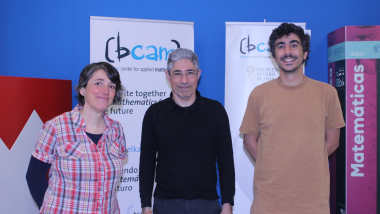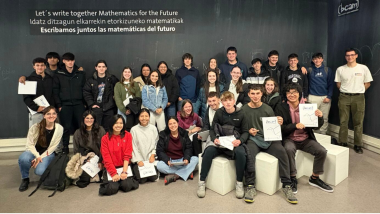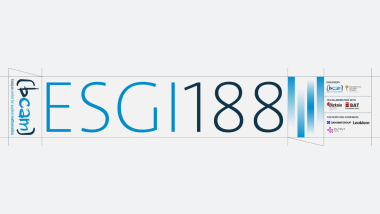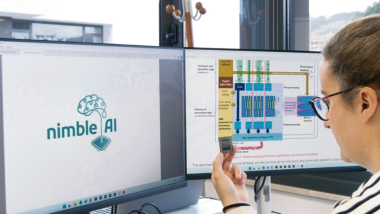IN-DEEP, the new MSCA Doctoral Network project for training PhD students in Deep Learning techniques
- The project is coordinated by researcher David Pardo (UPV/EHU) and BCAM's role in the project is led by Judit Muñoz Matute, postdoctoral researcher at BCAM
- The aim is to promote training and research in new deep-learning technologies for inverse problems
The IN-DEEP, Real-time inversion using self-explainable deep learning driven by expert knowledge project, has obtained the very competitive grant MSCA Doctoral Network. The project has been granted 2.3 Million euros to train and supervise highly qualified Ph.D. candidates by partnerships of organizations from different research areas and sectors within the European Union in Deep Learning and Partial Differential Equations (PDEs).
For the project coordinator from BCAM, Judit Muñoz Matute, "as the principal investigator of BCAM in the project, it is a unique opportunity (and a challenge) to be able to supervise my first PhD students and thus build a solid career as an independent senior researcher", says the postdoctoral researcher of the Mathematical Design, Modellig and Simulation research line at BCAM.
The main objective of the IN-DEEP project is to provide high-level training to 9 Ph.D. students in the design, implementation, and use of explainable knowledge-driven Deep Learning (DL) algorithms to quickly and accurately solve inverse problems governed by Partial Differential Equations (PDEs).
This area of research has experienced worldwide growth in the last decades. This has been motivated by promising results in many applications. The project will focus on real-life, high-risk problems arising from applications related to geophysics, smart cities, and health. IN-DEEP will develop fundamental research in universities and research institutes that will be validated and applied to real-life cases in technology centres and companies. "IN-DEEP will give us the opportunity to train PhD students to become excellent modern researchers in DL techniques for fundamental inverse problems for our society, with a very complete profile and suitable career prospects in both the academic and non-academic sectors”, adds the investigator Judit Muñoz Matute.
Inverse problems in which unknown parameters are connected to experimental measurements using PDEs cover many applications: medical imaging of the human body or cancer growth assessment, the safety of civil infrastructures such as bridges and buildings, and ecological geophysical applications such as underground hydrogen and CO2 storage or geothermal energy production.
This project is also challenging because, despite promising results in many applications, DL for PDEs currently presents severe limitations. "The most problematic is their lack of a solid theoretical basis and explainability, which prevents potential users from integrating them into high-risk applications. Therefore, it is an opportunity for the project consortium to generate results at the frontier of knowledge, developing cutting-edge technologies from a multidisciplinary and cross-sectoral perspective," concludes Muñoz Matute, project coordinator from BCAM.
The project consortium is made up of 7 European universities and research centres; the University of the Basque Country (Spain) coordinator of the project, the University of Nottingham (UK), University of Pavia (Italy), Polytechnic of Torino (Italy), School of Arts and Crafts (France), University of AGH (Poland) and the Basque Center for Applied Mathematics (Spain) and two companies Tecnalia Research & Innovation and Siemens, with complementary areas of expertise in applied mathematics, artificial intelligence, high-performance computing and engineering applications.
Related news
About the center
About the center




